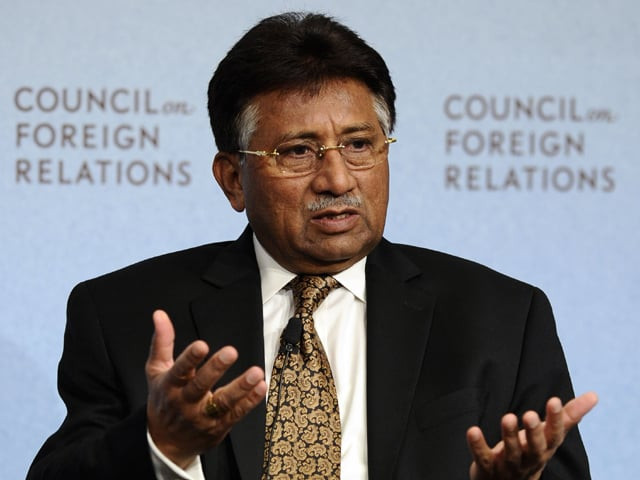The Musharraf brand, if you will, is pretty toxic. For all the talk of grassroots contact campaigns, the All Pakistan Muslim League (APML) rarely hits headlines, or captures public imagination. It doesn’t help that the leader of the APML, Pervez Musharraf himself, is not in the country.
He is spending most of his time criss-crossing the United States (US), meeting various local support bases among the expatriate community. I guess his brand value is greatest among ineligible voters.
APML’s political strategy remains a mystery. The much publicised Facebook support base cannot be counted on. Musharraf has stated that he will return to Pakistan on the March 23, 2012. However, it is still not clear whether the military would be willing to offer him security or whether he trusts the Federal Investigation Agency (FIA) to meet his security requirements. That date could very well come and go without Musharraf stepping foot on Pakistani soil.
Assuming he does return, that would give him under a year to plan and implement APML’s electoral campaign. For a party with no political infrastructure that is hardly enough time to challenge the reigning political heavyweights.
But, what of his prospects?
For him to have any political success, he and his party would need to build a coalition of allies. Where would these allies come from?
Given the legacy of the Akbar Bugti assassination and operations initiated under his watch in Balochistan, no sane political actor would want to associate themselves with the Musharraf brand.
A host of right-wing parties who hold him responsible for turning on the Afghan Taliban, allying Pakistan with the US, sending troops into the Federally Administered Tribal Aread (Fata), loosing focus of the Kashmir cause etcetera, are unlikely to be won over by empty slogans of “Pakistan first.”
The young, educated middle class, who grew up during the honeymoon years, 1999-2004, charmed by the more liberal, social and cultural environment, booming media and the penetration of cellular networks etcetera, should be a natural constituency for the APML. However, the Pakistan Tehreek-e-Insaf (PTI) has captured the imagination of young potential voters, while in a city like Karachi, ethnicity based politics by the Awami National Party (ANP) and the Muttahida Qaumi Movement (MQM) ensures additional voters remain beyond the reach of APML.
That said we don’t live in a rational or predictable political environment. Eight months is a long time in Pakistani politics, and we should never underestimate the influence of what goes on behind closed doors.
Musharraf is obviously being protected in the corridors of power. For example, the Board of Revenue of the four provinces, GHQ, and DHA refused to furnish details of his property in the ongoing Benazir Bhutto assassination case. Evidence in the Akbar Bugti assassination case has conveniently disappeared. Then we have the infamous “deal” struck between Zardari and Musharraf, and the ubiquitous “foreign guarantors”.
Musharraf has stated that he is willing to face cases on his return to Pakistan. Whether the military high command will tolerate a former Chief of Army Staff (COAS) to be publicly tried or convicted is also another big unknown. All this helps to keep Musharraf beyond legal sanction. Musharraf, in all likelihood, will never have to deliver on his promise to face cases on his return.
I am not suggesting that he is part of any conspiracy or a backroom manipulation of political processes. What I would say is that they are too many unknowns, and how they will facilitate or hinder his political ambitions is yet to be seen.
In my opinion, Musharraf is probably suffering from what David Owen identified as the “hubris syndrome”. A feature of this syndrome is the fantasy that a national leader would one day be “called back” to save their countries. Perhaps this article, television interviews, newspaper columns and media coverage do little more than indulge his fantasies. The more important question however, is whether the Pakistani voter is willing to indulge him or not?
[poll id="76"]
Musharraf is just not a good brand
He has announced a big return, but Musharraf is likely to stay overseas: his brand value is among ineligible voters.



COMMENTS
Comments are moderated and generally will be posted if they are on-topic and not abusive.
For more information, please see our Comments FAQ